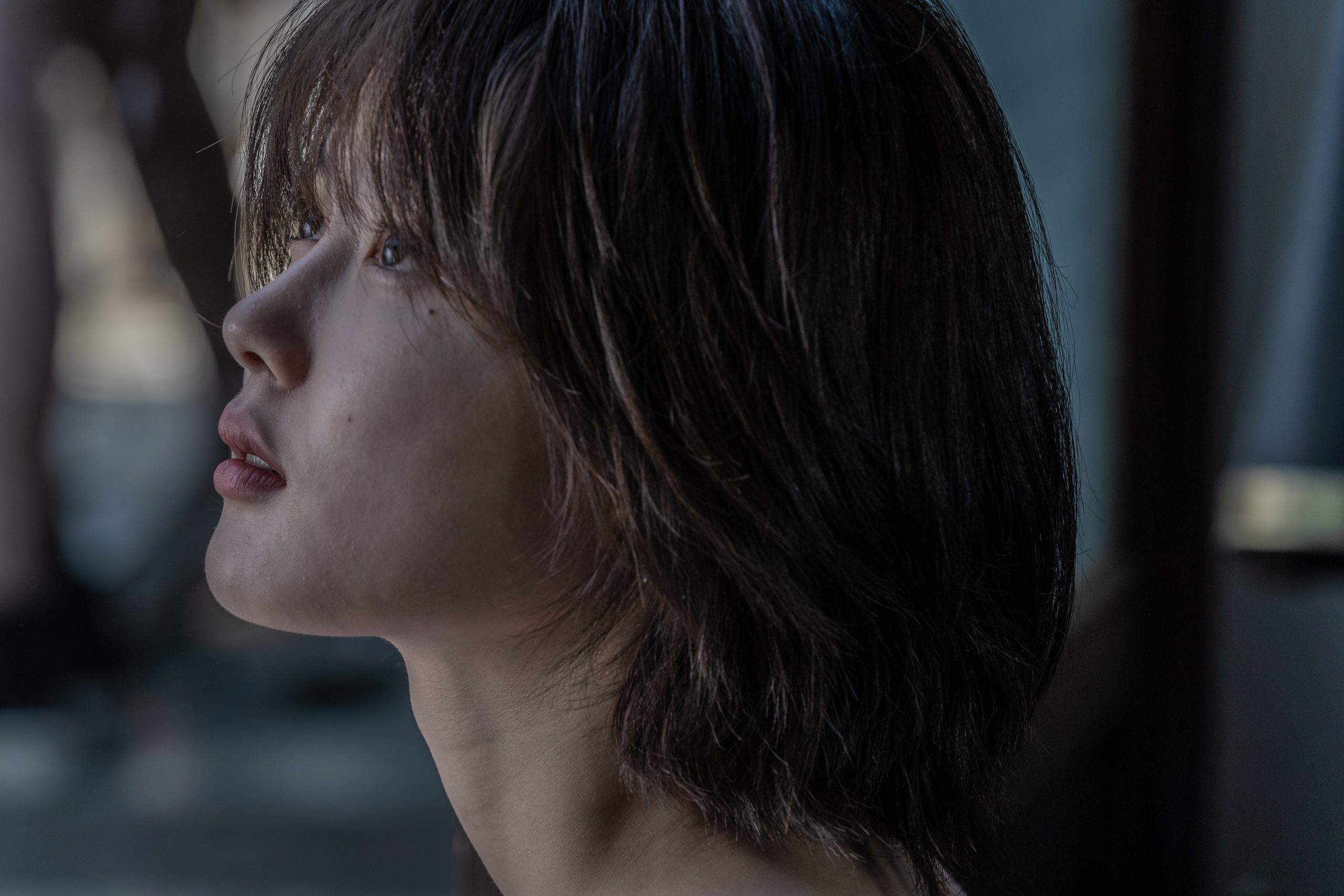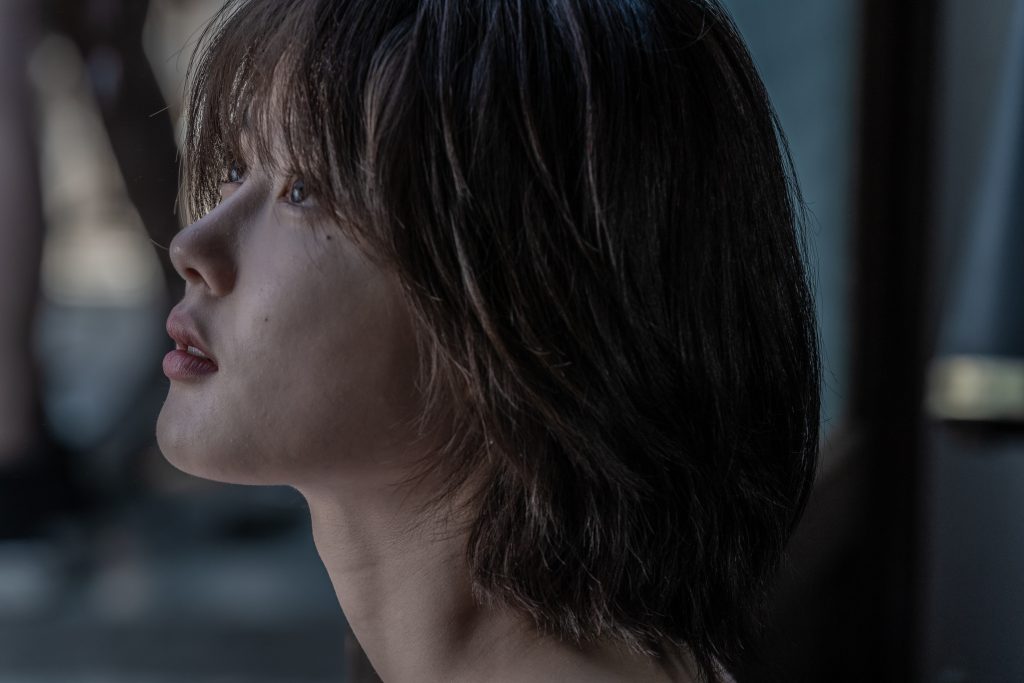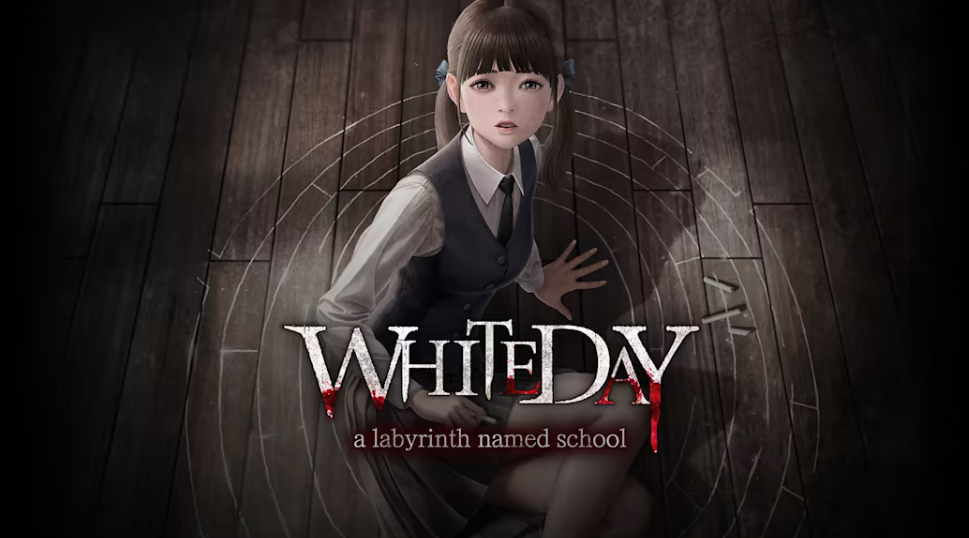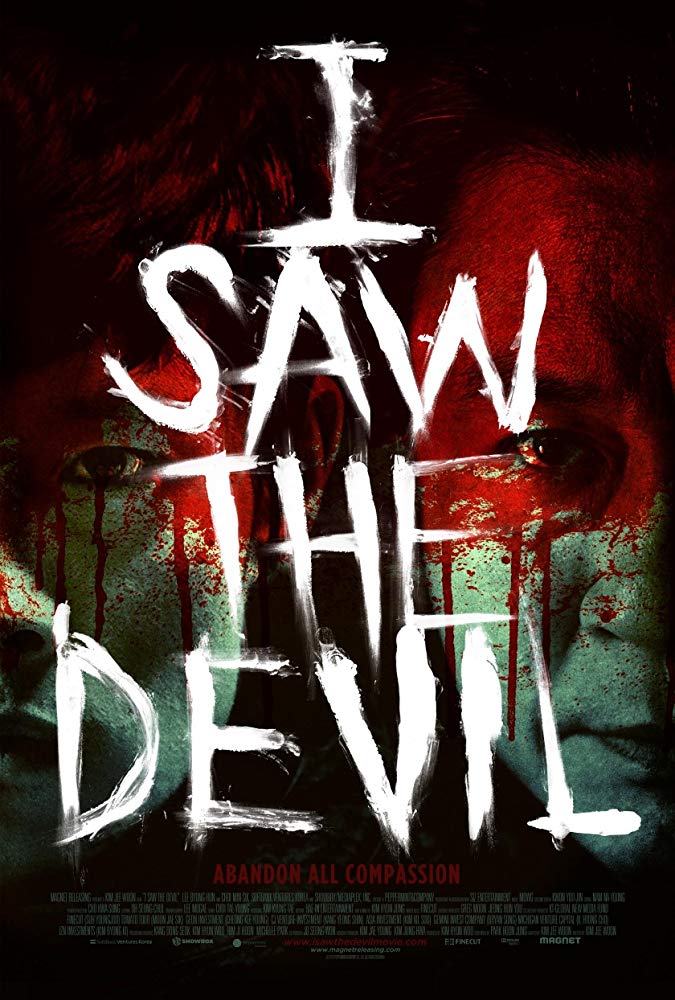
The 8th Night – Slow burn horror at its finest
The 8th Night is Netflix’s newest Korean horror entry. If Army of the Dead was bubble gum horror, then The 8th Night is a filling, well thought, beautifully and brutally shot, main course. The film builds firmly on character, with award worthy performances from the cast. The world building and set design are both vibrant and Earthy. This isn’t a fantastical movie – you won’t be wowed by CGI, special effects, a billion dollar budget, or lens flare – this is a gritty back to basics story telling event that will suck you in from the first.

The Good, The Bad, The not-so Ugly
There is a lot of good in this film. The plot is interesting, and the vision of pulling the narrative together creates a unique voice. There are parts of the movie that might remind you of X or Y, but the overall flow is strictly singular. Because of this voice and style of craft, the movie is both immersive and worth subsequent viewings. If I had to tie a Hollywood pitch to this, I would say it’s Shutter Island meets The Last Boy Scout. The movie is part buddy film/fish out of water and part exorcism. It’s the juxtaposition between crime drama and buddy film that breathes life into what could have been a very straight path horror film.
One thing to be clear on, The 8th Night is not Train to Busan action-wise, but it’s a damn good rival story-wise.
Jim on The 8th Night
There are some horror fans that want action, blood, guts, sharks flying through the air – to be honest, I am in that camp, too. If you are squarely in that camp, then maybe this is not the film for you. The movie has action sequences. However, the movie shines from character exploration done in a world ever so slightly askew from our own. If you are in the horror camp of ‘blood, guts, and ass’ (I think that’s Scary Movie quote) and you want to expand your palate, then The 8th Night might be your ticket into something new. You should give it a whirl and if aren’t convinced by the end of the film, well I hear Hollywood has you covered with the 30th remake of The night of the living zombie jaws – orcist.

A Note on Exposition – we all need it yet so many fail at it
Exposition is a necessary tool for movies. You get 90-120 minutes to tell a complete arc and sometimes that means filling in the shading details external to the main story. Exposition, on a good day, comes out ‘ok’ (think the way Star Wars does it with Obi Won telling Luke about his dad). Most movies force exposition to the point of being cringe worthy (think Suicide Squad….any part of the film). However, in that magical moment when a movie does exposition creatively, it can raise an OK film to stellar (think how we’re introduced to the Deathly Hallows or how the Big Short did any of its exposition). The 8th Night falls squarely in the latter camp. The exposition draws you in – it made me stop everything else that I was doing (damn multitasker here!) and focus on the movie.
If you’re from the MutantFam, then you’ve just come off viewing the Korean horror crotch-kick to your feels that is Train to Busan. One thing to be clear on, The 8th Night is not Train to Busan action-wise, but it’s a damn good rival story-wise.

A life-or-death battle spanning eight days to prevent the breaking of the seal that restrains “That Which Must Not Awaken.” Once awakened, it can cross the stepping stones to wreak havoc on this world.
Logline from The 8th Night
The 8th Night – Verdict
The 8th Night is one of the best horror movies I’ve seen this year. If it weren’t for Train to Bustan, I would label it ‘the best horror movie’ I’ve seen this year. I put my money where my mouth is and, to be blunt, this movie made me re-up my Netflix subscription. If you look at Netflix like a date night, then the monthly fee for a new release horror is well worth the price of admission.
I think Netflix expanding their content from foreign markets is a good thing. I can take only so many Michael Bay explosions in my horror. Ed Warren can tease that Chekhov’s gun so many times without blowing someone’s head off. If movies like Train to Busan and The 8th Night show us anything, it’s there is a whole wonderful world of diverse horror waiting for us. It’s okay to go back to the re-re-remake of Pet Semetary. There’s a place for everything in the horror-verse. As The 8th Night shows, there’s even a place for solid horror entertainment that has feels, smarts, and character.
 (4.5 / 5)
(4.5 / 5)
Movies n TV
Wheel of Time A Question of Crimson Is a Political Espionage Delight
Episode two of Wheel of Time felt like the beginning of a long journey. Stories are unfolding, lives are changing, and blood is spilling.
Let’s discuss.
The story
We begin this episode in the past with Elayne’s mother, Queen Morgase. It turns out her rise to the throne was a bit, shall we say, cutthroat. So when she shows up at the White Tower, Siuan is concerned.
She might have reason to be, too.
Meanwhile, Rand, Egwene, Moiraine, Lan and Aviendha are in the Spine of The World. As they travel through some of the most breathtaking lands I have ever seen on a TV show, Egwene is plagued with nightmares. We think at first that’s just her trauma working itself through her system. But we soon find out that it might not be that straightforward.
Finally, Perrin returns home to heal after his hand is almost cut in half. But when he gets there he finds the town has been infested by Children of The Light. And they’re looking for him.
What worked
There was something heartwarming in this episode about political espionage and choking religious persecution. And that is Elayne’s relationship with her family.
I have consumed a lot of fantasy content with royal families. And I have never once heard a princess call her mother ‘Mum’. I’ve never seen royal siblings get along. And I have sure as hell never seen a princess have a good relationship with her step-parent.
This was refreshing. Even though Queen Morgase is kind of a horrible person she seems like a good mother. And that’s an unexpected delight.

Of course, this is just one storyline among many. And while this can sometimes be overwhelming, in this case it wasn’t.
I’ll be honest, some of these storylines are going to drag for me. I know this because I’ve read some of the Wheel of Time books and I have an idea that not all the characters exactly pique my interest.
No one likes all the characters. No one likes all the storylines. While I am here for the political espionage between Queen Morgase and Siuan, not everyone likes it. While others might be fascinated with Selene trying to win Rand back, I couldn’t care less.
Having multiple storylines keeps everyone’s attention better. So long as things don’t get out of hand. Things can easily get out of hand. But this seems to be managed well.
So far.
What didn’t work
As I mentioned above, I’m not thrilled with Rand’s story at this point. And while it’s fine to not like a storyline when there are this many to choose from, it’s not fantastic that the one I like the least is the one involving our two main characters. And anytime we were with the team at the Spine of The World, the only thing that brought me joy was Moirain’s hat. It reminded me of Stockard Channing’s hat in Practical Magic.
The problem is that Rand is Charlie Brown with controversial magical powers. He is boring, serious, and pessimistic.
And yes, I understand that he has a heavy emotional burden and he’s the Dragon Reborn and that’s quite taxing and all. But let’s be fair, there isn’t a single person in this show that doesn’t have a heavy burden. And most of them manage to be fun occasionally.

All that being said, this episode of Wheel of Time did exactly what it needed to do. It set up conflicts at each of the three locations. It established emotional ties between the characters and the events. And it established goals for everyone.
This was, in short, a solid episode. Not groundbreaking, not mind-blowing or life changing. It was simply good. It was entertaining and moved the plot forward.
Well done.
 (3.5 / 5)
(3.5 / 5)
Movies n TV
Wheel of Time Returns With A Bang
Wheel of Time is back for season three. There are mixed feelings regarding this. Last season, there were some serious pacing issues. And some serious sticking to the book’s storyline issues. But we’re two seasons in, and we don’t give up so easily. So let’s dive into episode one, To Race the Shadow.
By the way, I highly recommend watching this episode with the subtitles on. You’ll see why.
The story
We begin this episode with Liandrin facing a trial of sorts for her rampant betrayal. She does her best to gaslight her Aes Sedai sisters into thinking that Siuan Sanche is the real traitor.

When that doesn’t work, she reveals how many Black Aes Sedai have actually infiltrated the tower.
Spoiler, it’s a lot.
In the aftermath, our whole team gathers to drink and enjoy one night of relaxation before they head out to the Tear to form an army for Rand. All is going well until they’re attacked by myriad creatures and a sentient axe.
What worked
This episode was long. It had a run time of an hour and eleven minutes. And a lot of that run time was spent in heavy dialog scenes.
Fortunately, these were well-done scenes.
If you’re going to have a lot of talking scenes, there are good ways and bad ways to do it. Last season, we saw lots of examples of the bad way to do it. But this episode did it well. For one thing, other things were going on while conversations were taking place. The characters are drinking, playing games, walking through an interesting city. And the scenes themselves didn’t stretch out. They weren’t repetitive. We heard what the character had to say, then we moved on.
It was also nice that the point of these scenes wasn’t just info dumps. We had character development. We had romantic interactions. We had plot development and foreshadowing.
Overall, this episode felt like what it was. A moment of calm before a storm.
Taking a step back, I’d be remiss if I didn’t address the fight scene at the start of the episode. Because it was epic.
The magic looked amazing. The martial arts that went along with it looked fantastic. The costumes were beautiful. It was just incredibly fun to watch.
More than that, it was emotional. We lost some characters in that fight that were important. And it was clearly emotionally shattering for many of our characters, who found themselves betrayed by people they trusted.
So many of them.
It was a great way to open the season.
What didn’t work
Despite that, this episode wasn’t without its flaws.
First off, there were a lot of dialog scenes. And they were good scenes, as I’ve already discussed. But it was one after another after another. And when your episode is, again, an hour and eleven minutes, it’s maybe a little much to have so much chit-chat. Couldn’t some of these conversations, important as they were, have been moved to maybe another episode?
Finally, I want to talk about Egwene’s travel through the arches.

I feel like maybe there were some deleted scenes here. Because there must have been more to that visit than what we saw, right?
We could have seen Egwene battle Rand. That would have been badass and emotionally devastating. We could have seen her with a quiet life with Rand back home at the Two Rivers. We could have seen anything except for the quick clip of Rand in a bloody river, followed by Egwene being shoved back out in a bloody shift.
Bad job. But at least it wasn’t an extended scene of Moiraine collecting bathwater, and then taking a bath while looking sad. If we’d started this season with another scene like that, it might have broken my brain.
Amazon dropped the first three episodes at once. So we’ll be back soon to talk about episode two. See you then.
 (4 / 5)
(4 / 5)
Movies n TV
Entertaining as hell: Eight Legged Freaks (2002) Review
Early 2000s is a special era for the industry. It accepts the cheesiness and corniness of movie making, in turn producing some gems in their own right. Eight Legged Freaks starring David Arquette and young Scarlet Johanson is a horror comedy about giant spiders who overtake a small town. As crazy as that premise sounds, the movie surprisingly has a ton of heart and is super entertaining. Let’s review, shall we?
Plot
We start Eight Legged Freaks with a shot of toxic waste spilling into the water supply of Joshua, a spider farm owner. He is friends with Mike, one of our protagonists, who is a science geek and a spider enthusiast. Mike notices something quite right upon visiting Joshua, but no one takes him seriously. We are then introduced to the rest of the crew. Mike’s mother Samantha, the town sheriff, is too busy chasing Ashley, his sister, who is dating the town mayor’s son Bret (something Samantha does not approve of). We also have Chris, who returns to the town to save his father’s legacy in the town mines. He has opposition from Wade, Bret’s father, who wants to use the mines for his business ventures. Lots of drama going on that will only get juicier once the spiders get loose.
The creepy crawlies quickly dispose of Joshua and make their grand appearance after Ashley rejects Bret’s advances, abandoning him in the middle of a desert. A glorious chase sequence ensues as the spiders make their way towards the town, wreaking havoc on its residents. In a true horror fashion (which the movie acknowledges), it takes some convincing from Mike and then from Samantha for the town to take the threat seriously. The tongue-in-cheek style of narrative adds the comedy aspect to a movie that would otherwise burn out fairly quickly.
The remaining characters hide out in a shopping mall as it’s the only somewhat sturdy building in the area. This doesn’t last long as the spiders break in, forcing them to run through the mines. Their resources to fight the creepy crawlies off are limited as the methane gas doesn’t allow them to use firearms. Such conditions require resourceful thinking from Chris, who uses perfume to fend off the leader of the spider group and save himself during the climax of the movie.
Character dynamics are not forgotten once the action kicks in. We have Chris confessing his long-term feelings for Samantha which she knew all along, which provided some comedic relief. Bret also reunites with Ashley and apologises for being an asshole. Mike finally gets the appreciation he deserves as his knowledge saves the townsfolk more than once during the whole ordeal.
We end the movie with the town’s radio show person telling the story as an urban legend during his segment. This brings it into question – how much of it happened the way he said it did? We can only guess…
Overall thoughts
Eight Legged Freaks is a fun creature feature with some self-aware commentary on genre tropes that doesn’t take itself too seriously. The acting is good, the pacing fitting and the characters are likeable enough for you to want them to make it through. Definitely a must watch, if you don’t suffer from arachnophobia, that is.
 (5 / 5)
(5 / 5)



